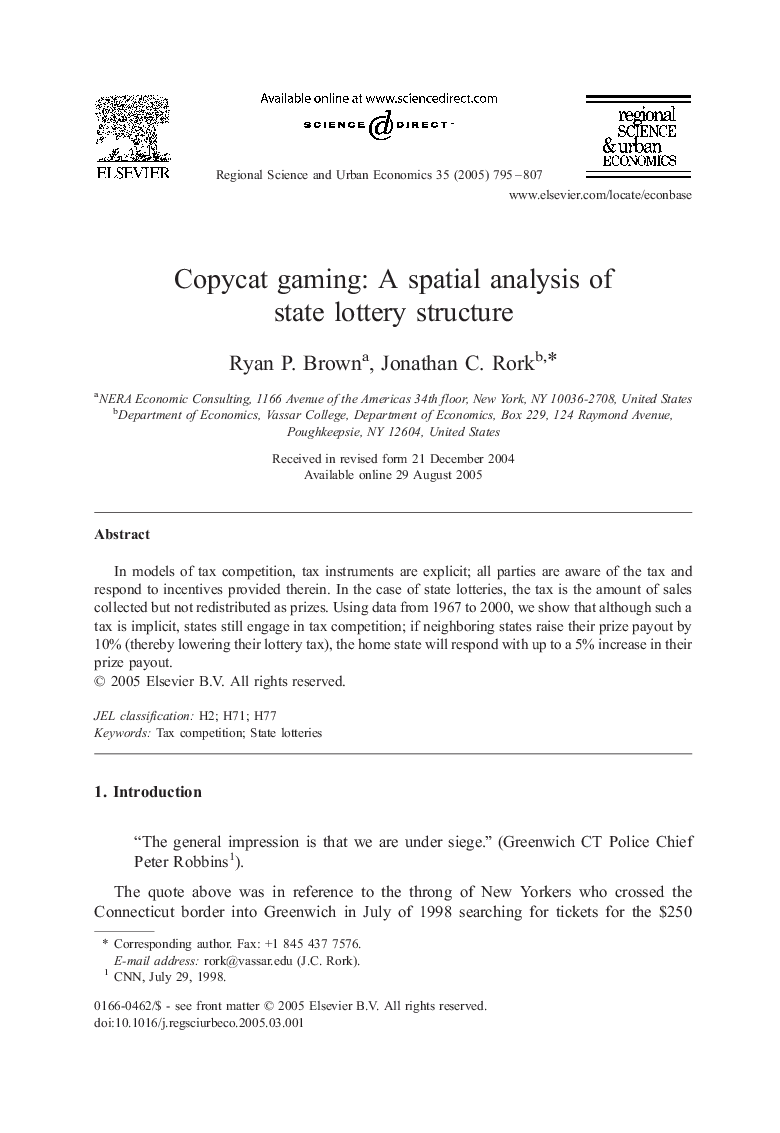| Article ID | Journal | Published Year | Pages | File Type |
|---|---|---|---|---|
| 10482465 | Regional Science and Urban Economics | 2005 | 13 Pages |
Abstract
In models of tax competition, tax instruments are explicit; all parties are aware of the tax and respond to incentives provided therein. In the case of state lotteries, the tax is the amount of sales collected but not redistributed as prizes. Using data from 1967 to 2000, we show that although such a tax is implicit, states still engage in tax competition; if neighboring states raise their prize payout by 10% (thereby lowering their lottery tax), the home state will respond with up to a 5% increase in their prize payout.
Keywords
Related Topics
Social Sciences and Humanities
Economics, Econometrics and Finance
Economics and Econometrics
Authors
Ryan P. Brown, Jonathan C. Rork,
